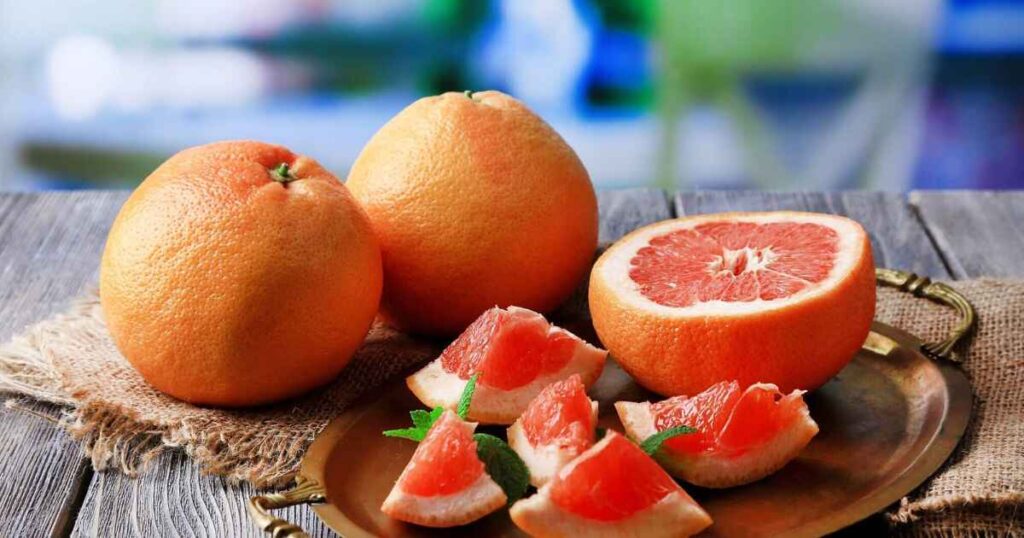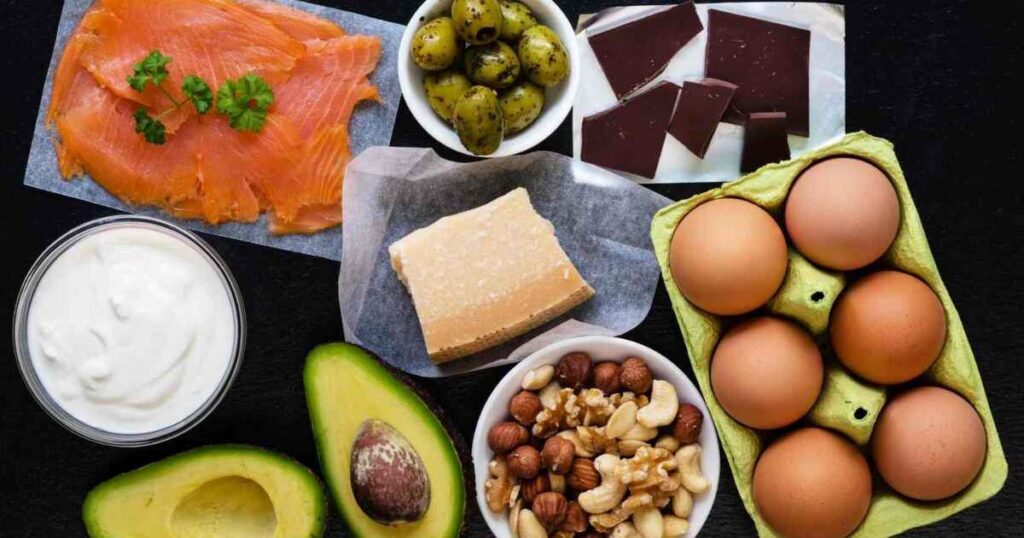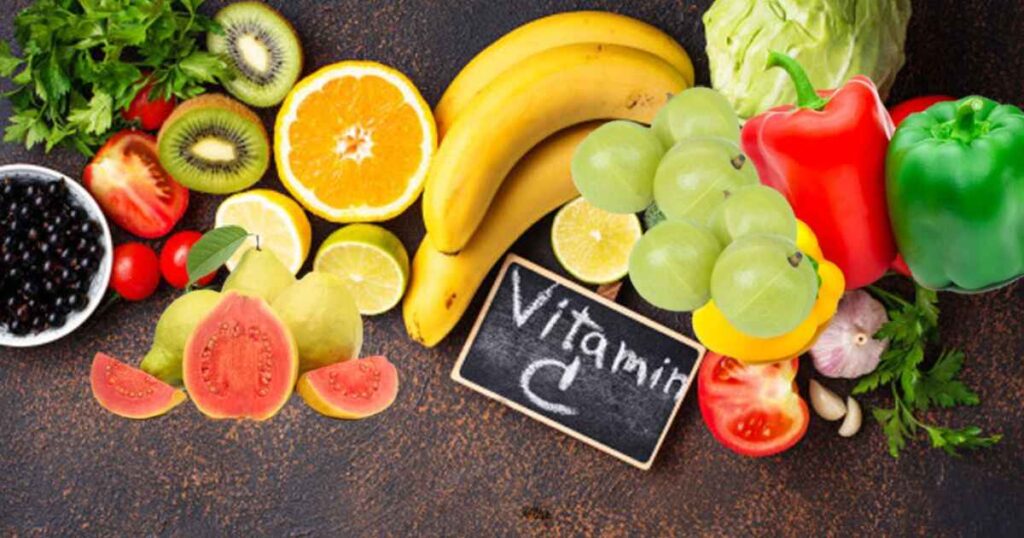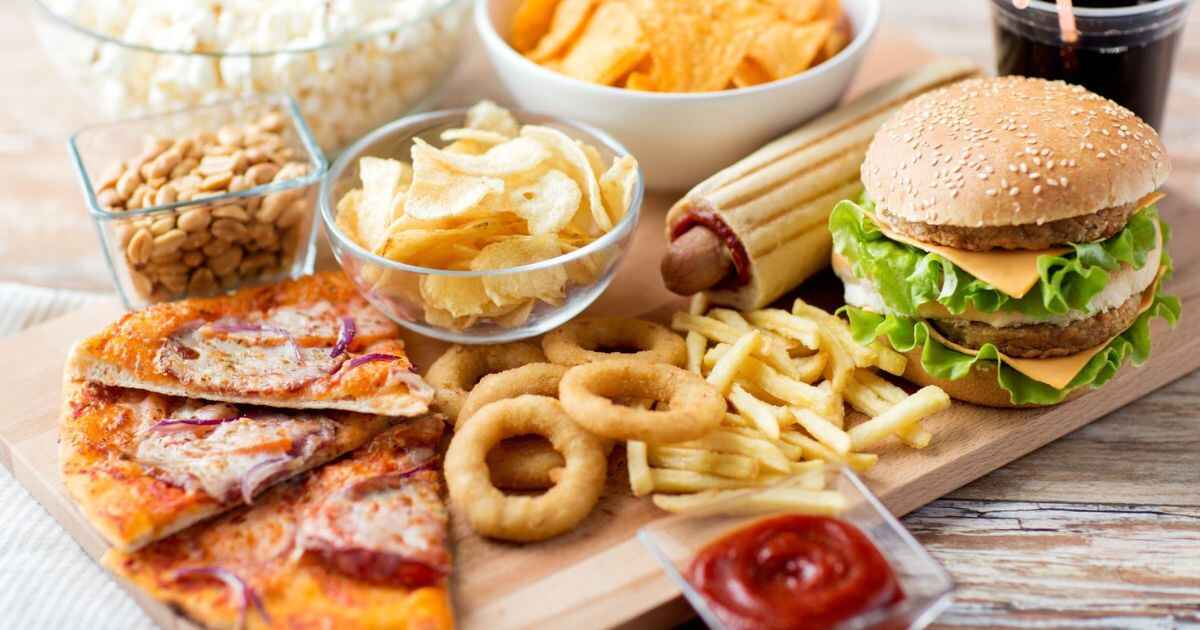If you or a loved one have been prescribed Strattera (atomoxetine) for the treatment of Attention Deficit Hyperactivity Disorder (ADHD), it’s crucial to understand how certain foods can interact with this medication. While Strattera is generally well-tolerated, avoiding specific foods can help prevent potential side effects and ensure optimal treatment effectiveness. In this comprehensive guide, we’ll explore five foods to avoid while taking Strattera and provide valuable insights into maintaining a balanced diet during your treatment.
5 Foods To Avoid While Taking Strattera
1) Alcohol

Consuming alcohol while taking Strattera can amplify the medication’s side effects, such as dizziness, drowsiness, and impaired coordination. Alcohol is a central nervous system depressant, while Strattera is a stimulant medication, creating a counteractive effect that can be potentially dangerous. Also, alcohol may decrease the effectiveness of Strattera, potentially reducing its ability to manage ADHD symptoms.
It’s best to abstain from alcohol or consume it in moderation after consulting with your healthcare provider. If you choose to drink, be aware of the increased risk of adverse effects and impairment, and never operate heavy machinery or drive under the influence.
2) Caffeine

Strattera and caffeine can have a compounding effect on the central nervous system, leading to increased anxiety, jitteriness, and difficulty sleeping. Caffeine is a stimulant, and when combined with Strattera, it can exacerbate the medication’s potential side effects, such as headaches, nausea, and elevated blood pressure.
Limit your intake of caffeinated beverages like coffee, tea, energy drinks, and sodas while on Strattera to avoid these unwanted side effects. If you find it challenging to eliminate caffeine entirely, gradually reduce your consumption and be mindful of the amount you consume daily.
3) Grapefruit

Grapefruit and grapefruit juice can interact with Strattera, potentially increasing the medication’s levels in the bloodstream and heightening the risk of side effects. This interaction occurs because grapefruit contains compounds that can inhibit the enzymes responsible for metabolizing Strattera, leading to higher concentrations of the drug in the body.
It’s recommended to avoid consuming grapefruit and its juice while taking Strattera to maintain a consistent and safe dosage. If you’re unsure about the potential interactions of other citrus fruits, consult with your healthcare provider or pharmacist.
4) High-fat foods

Foods high in fat can delay the absorption of Strattera, reducing its effectiveness. When Strattera is taken with a high-fat meal, the medication may not be absorbed into the bloodstream as efficiently, potentially diminishing its ability to manage ADHD symptoms.
Try to limit your intake of fried foods, fatty meats, and high-fat dairy products when taking this medication. Instead, opt for lean protein sources, whole grains, and plenty of fruits and vegetables to support a balanced diet.
5) Vitamin C-rich fruits

While vitamin C is generally beneficial, consuming large quantities of vitamin C-rich fruits like oranges, grapefruits, and tomatoes can potentially reduce the efficacy of Strattera. Vitamin C can interact with certain medications, including Strattera, and may affect how the body absorbs and metabolizes the drug.
Moderation is key when including these fruits in your diet while taking Strattera. Consult with your healthcare provider or a registered dietitian to determine the appropriate serving sizes and frequency of consumption for vitamin C-rich foods.
3 Foods To Eat While On Strattera
While avoiding certain foods is essential, incorporating specific nutrient-rich options can support your overall health and potentially enhance the effectiveness of Strattera.
1) Foods high in protein
Protein-rich foods like lean meats, fish, eggs, and legumes can help counteract some of the potential side effects of Strattera, such as decreased appetite and nausea. Protein plays a crucial role in maintaining satiety and promoting a feeling of fullness, which can be particularly beneficial if you experience appetite changes while taking this medication.
Here are some excellent protein sources to consider:
- Grilled or baked chicken or turkey
- Lean cuts of beef or pork
- Salmon, tuna, and other fatty fish
- Eggs
- Lentils, beans, and quinoa
Incorporating these foods into your diet can help maintain overall nutritional balance and support healthy weight management while taking Strattera.
Related Post: Fruit Roll-Up Ice Cream
2) Omega-3 fatty acids
Fatty acids found in foods like salmon, walnuts, and flaxseeds may help enhance the effectiveness of Strattera and improve focus and concentration. Omega-3 fatty acids have been shown to have potential benefits for brain health and cognitive function, which can be particularly beneficial for individuals with ADHD.
Here are some excellent sources of omega-3 fatty acids:
- Fatty fish (salmon, mackerel, sardines)
- Walnuts
- Flaxseeds
- Chia seeds
- Omega-3 fortified eggs
Incorporating these healthy fats into your diet can be beneficial while taking Strattera, but be mindful of portion sizes, as they are also high in calories.
3) Water
Staying well-hydrated is essential when taking Strattera, as it can help alleviate potential side effects like dry mouth and constipation. Adequate hydration also supports overall bodily functions, including cognitive performance and concentration.
Aim to drink plenty of water throughout the day to support your body’s overall function. You can also include other hydrating beverages like herbal teas or low-fat milk in moderation. Avoiding excessive consumption of sugary or caffeinated beverages is recommended to prevent potential interactions with Strattera.
Are There Any Other Interactions With Strattera?
In addition to food interactions, Strattera can potentially interact with certain medications, supplements, and herbal remedies. It’s crucial to consult with your healthcare provider or pharmacist about any other substances you’re taking to avoid adverse reactions or diminished treatment efficacy.
Some common interactions to be aware of include:
- Antidepressants: Strattera may increase the risk of side effects when taken with certain antidepressants, such as selective serotonin reuptake inhibitors (SSRIs) or serotonin-norepinephrine reuptake inhibitors (SNRIs).
- Blood pressure medications: Strattera can potentially interact with medications used to treat high blood pressure, potentially causing dizziness or fainting.
- Herbal supplements: Some herbal supplements, such as St. John’s wort, may decrease the effectiveness of Strattera or increase the risk of side effects.
It’s essential to provide your healthcare provider with a comprehensive list of all medications, supplements, and herbal remedies you’re taking to ensure your safety and the optimal effectiveness of Strattera.
Should You Take Strattera With Food?
While Strattera can be taken with or without food, it’s generally recommended to take it with a meal or snack to minimize potential side effects like nausea and stomach upset. Taking the medication with food can help slow down its absorption rate, reducing the risk of gastrointestinal discomfort.
But, be mindful of the types of foods you consume, as mentioned earlier, to avoid any adverse interactions. Stick to balanced meals that include lean proteins, whole grains, and fruits and vegetables while avoiding high-fat, caffeinated, or alcoholic options.
If you experience persistent nausea or other side effects after taking Strattera with food, consult with your healthcare provider, as dosage adjustments or alternative medications may be necessary.
Foods to avoid with Strattera
To summarize, the following foods should be avoided or limited while taking Strattera:
- Alcohol
- Caffeine
- Grapefruit and grapefruit juice
- High-fat foods
- Vitamin C-rich fruits (in excess)
It’s essential to be mindful of these potential interactions to ensure the safe and effective use of Strattera for managing ADHD symptoms.
Safe Foods to Eat with Strattera
On the other hand, these foods can be beneficial to incorporate into your diet while taking Strattera:
- Protein-rich foods
- Omega-3 fatty acids
- Water
By including these nutrient-dense options in your diet, you can support overall health and potentially enhance the effectiveness of Strattera.
Remember, every individual’s response to Strattera and dietary needs may vary. It’s essential to consult with your healthcare provider or a registered dietitian to develop a personalized nutrition plan that supports your overall health and treatment goals.
By being mindful of the foods you consume and the potential interactions with Strattera, you can maximize the medication’s effectiveness and minimize any potential side effects, ultimately supporting a better quality of life while managing your ADHD symptoms.
Case Study: Sarah’s Experience with Strattera and Diet
Sarah, a 35-year-old marketing professional, had been struggling with ADHD symptoms for years. After trying several medications with limited success, her doctor prescribed Strattera. Initially, Sarah experienced some side effects, including nausea and decreased appetite.
During a follow-up appointment, her healthcare provider reviewed her dietary habits and recommended making some adjustments to support her treatment:
- Avoiding alcohol and caffeine: Sarah was advised to eliminate alcohol and limit her caffeine intake to reduce the risk of exacerbated side effects and potential interactions with Strattera.
- Incorporating lean proteins: To combat the decreased appetite, Sarah’s healthcare provider suggested incorporating more lean protein sources, such as grilled chicken, fish, and legumes, into her meals to promote a feeling of fullness and maintain adequate nutrition.
- Adding omega-3s: Sarah was encouraged to include foods rich in omega-3 fatty acids, like salmon and walnuts, to potentially enhance the effectiveness of Strattera and support cognitive function.
- Staying hydrated: Drinking plenty of water throughout the day helped alleviate Sarah’s dry mouth and aided in overall bodily function.
By following these dietary recommendations, Sarah noticed a significant improvement in her ADHD symptoms and a reduction in the side effects she initially experienced. Her increased focus and concentration positively impacted her work performance and overall quality of life.
“Adjusting my diet made a world of difference in my Strattera treatment. I’m grateful for the guidance from my healthcare provider, as it allowed me to manage my ADHD symptoms effectively while minimizing any adverse effects.” – Sarah
Sarah’s experience highlights the importance of considering dietary factors when taking Strattera and following personalized recommendations from healthcare professionals for optimal treatment outcomes.
Quick Tips: Strattera and Food Interactions
- Avoid alcohol and caffeine: These substances can amplify side effects and decrease Strattera’s effectiveness.
- Stay away from grapefruit: Grapefruit and its juice can increase Strattera levels in the bloodstream.
- Limit high-fat foods: They can delay the absorption of Strattera, reducing its efficacy.
- Moderate vitamin C-rich fruits: Excessive intake may reduce the effectiveness of Strattera.
- Include lean proteins: They can help manage potential side effects like decreased appetite.
- Incorporate omega-3s: Foods like salmon and walnuts may enhance Strattera’s benefits.
- Stay hydrated: Drink plenty of water to alleviate potential side effects like dry mouth.
Remember, every individual’s response to Strattera and dietary needs may vary. Consult with your healthcare provider or a registered dietitian to develop a personalized nutrition plan that supports your overall health and treatment goals.
By being mindful of the foods you consume and the potential interactions with Strattera, you can maximize the medication’s effectiveness and minimize any potential side effects, ultimately supporting a better quality of life while managing your ADHD symptoms.
Also Read: How to Last Longer in Bed Naturally with Food
People Also Ask (FAQ’s)
What foods should be avoided while taking Strattera?
Avoid high-tyramine foods like aged cheeses and cured meats, and be cautious with grapefruit due to potential interactions, but no strict dietary restrictions are mandated.
Can I drink alcohol while taking Strattera?
It’s advisable to limit alcohol consumption as it may increase dizziness and drowsiness, potentially exacerbating Strattera’s side effects.
Are there any specific dietary restrictions with Strattera?
While no strict restrictions exist, it’s recommended to avoid excessive caffeine and high-fat meals, which may impact the medication’s effectiveness or exacerbate side effects.
Should I avoid caffeine while on Strattera?
Limiting caffeine intake is prudent, as both Strattera and caffeine can elevate heart rate and blood pressure, potentially leading to adverse effects.
Can I take Strattera with food?
Yes, Strattera can be taken with or without food, but high-fat meals may delay its absorption, so taking it with a light meal or snack is preferable.
Final Words
While Strattera offers focus and concentration benefits, certain foods can interact with it. For optimal medication effectiveness, it’s wise to limit alcohol and potentially avoid medications or supplements that raise blood pressure. Remember, consulting your doctor is key to ensure a safe and successful treatment plan with Strattera.

